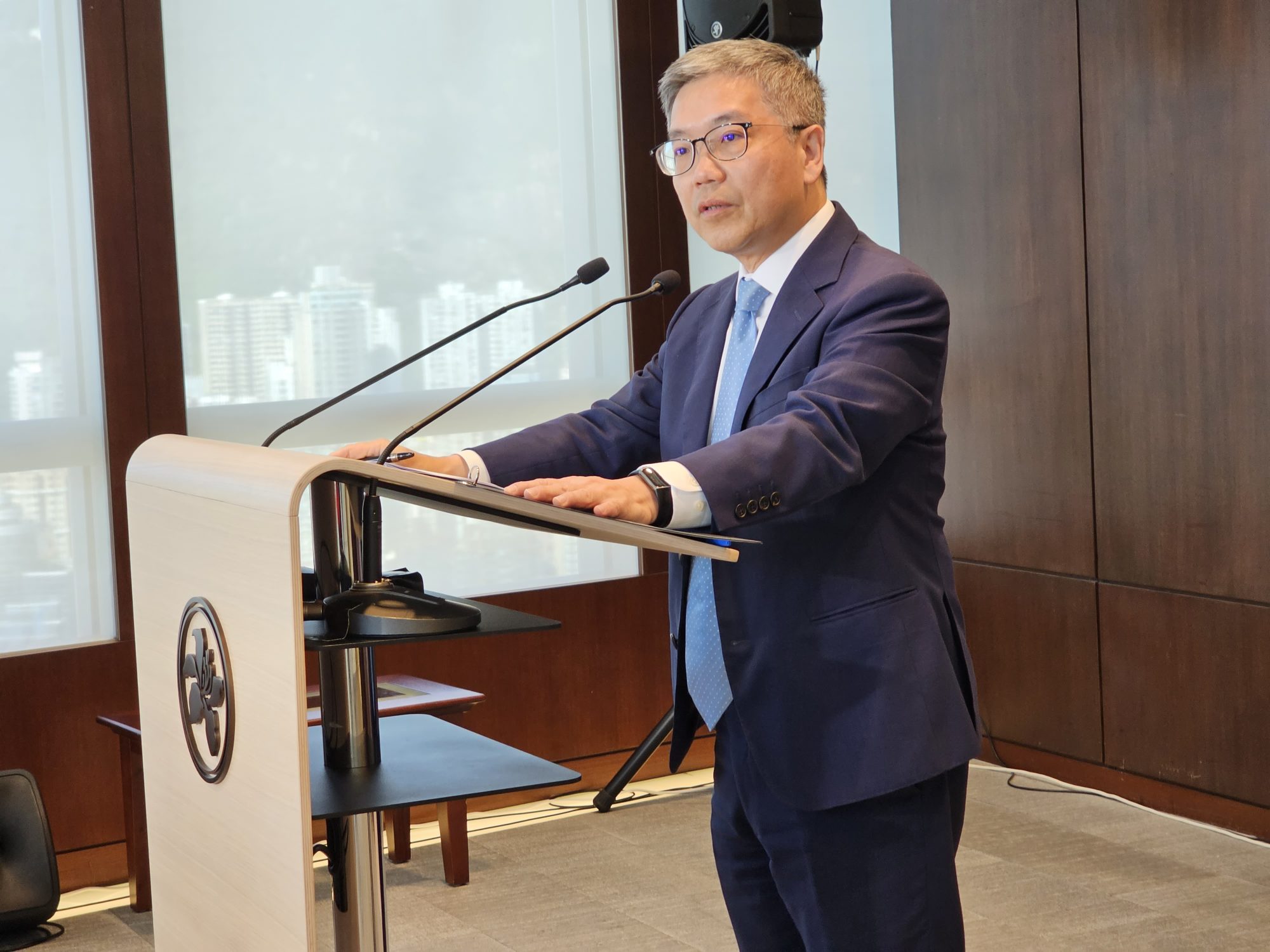
Hong Kong’s banks raise prime rates after city’s funding cost soars to 16-year high as US Fed leaves the door open for more inflation-busting moves
- The public should take be cautious of the high interest rate environment and that it may prevail for some time, acting HKMA CEO Arthur Yuen warns
- HSBC and BOCHK were the first banks to increase their prime rates following the move by the city’s monetary authority
Hong Kong’s commercial banks raised their prime rates for the second time this year, after the local monetary authority hiked the city’s base rate by a quarter point in lockstep with the US Federal Reserve.
Bank of China (Hong Kong), HSBC and Hang Seng Bank will raise the lending rate for their best customers by 12.5 basis points to 5.875 per cent from as early as Friday (today), paying 0.875 per cent per annum for saving deposits.
Standard Chartered Bank and Bank of East Asia will raise their prime rates by the same margin to 6.125 per cent, starting Monday , according to separate statements by the banks. They will also pay 0.875 per cent for the most basic savings accounts.
“Having considered the macroeconomic environment, [interest rate] trends as well as the impact on our economy, we believe the adjustments announced today are appropriate,” HSBC’s Hong Kong CEO Luanne Lim said. “We will continue to monitor the external environment and be prepared to adjust our rates when needed.”

“The Fed has indicated there would be little chance for any interest rate cut this year,” HKMA’s acting CEO Arthur Yuen Kwok-hang said. “The public should be mindful of interest-rate movements and relevant risks when purchasing property, taking out mortgages or borrowing for other purposes.”
“While the Fed wants to leave the door open to more rate hikes to keep a lid on easing financial conditions, [Chairman Jerome] Powell was clear that the Fed is nearing the end of tightening,” said Invesco’s global market strategist for Asia-Pacific (ex-Japan) David Chao, adding that any cut would take place in 2024. “Equity markets have prematurely anticipated the move to easing and wouldn’t be surprised to see a surrender of recent gains over the coming months before indices eventually move higher.”
Today’s increase followed a June recess when the Fed halted its rate-hike cycle to monitor the effects of rising interest rates on the American economy.

“Given the resilience of the economy recently, [the Fed’s economists] are no longer forecasting a recession” in the US, Powell said during a press conference.
His comment sent US stocks rising in New York. Hong Kong’s stock benchmark advanced by 1.4 per cent after the HKMA’s rate hike.
The US and Hong Kong have increased their policy rates by 5.25 percentage points over the past 17 months, tapering to quarter-point increases in February, March and May this year, from the 50-basis point move in December 2022.
Eleven of 13 analysts surveyed by the Post last week agreed that banks would be likely to lift their key rates by 12.5 to 25 basis points to help offset the pressure on funding costs in Hong Kong.
Adding to these concerns, Hong Kong’s interbank offered rates (Hibor) have risen, with the one-month rate reaching 5.24 per cent on Thursday from about 3 per cent in June. The three-month rate, a benchmark for pricing corporate loans, climbed to a 16-year high of 5.28 per cent, from 3.68 per cent a month ago.
Hong Kong’s “economy is recovering, and the demand for property is still there,” said Eric Tso Tak-ming, chief vice-president at the local mortgage broker mReferral before the latest rate hike. “The increase of interest rate may slow down the demand [for loans].”
A higher prime rate translates to higher monthly repayments for mortgage borrowers, affecting HK$1.8 trillion (US$232 billion) of outstanding home loans in Hong Kong.
Brace for mortgage pain as HSBC, Hong Kong peers seen raising rates: survey
An increase of 12.5 basis points will bring the prime rate of the city back to the level last seen in February 2008 before the rate cut during the global financial crisis.
The payment on a typical HK$5 million (US$643,000) mortgage over 30 years would rise by 1.6 per cent, or HK$351 to HK$22,803 per month if the prime rate is increased by 0.125 percentage point, according to calculations made by mReferral.
Higher costs of capital will exert pressure on the local economy, which has just emerged from a recession. Hong Kong’s economy expanded 2.7 per cent in the first quarter, after shrinking in the preceding two quarters, the standard definition of a recession.
Still, higher rates will not “hurt Hong Kong’s economic recovery or affect the bad-debt levels,” Yuen said. “Business activities have returned to normal after the border [with mainland China] reopened earlier this year, supporting the recovery of the local economy.”

